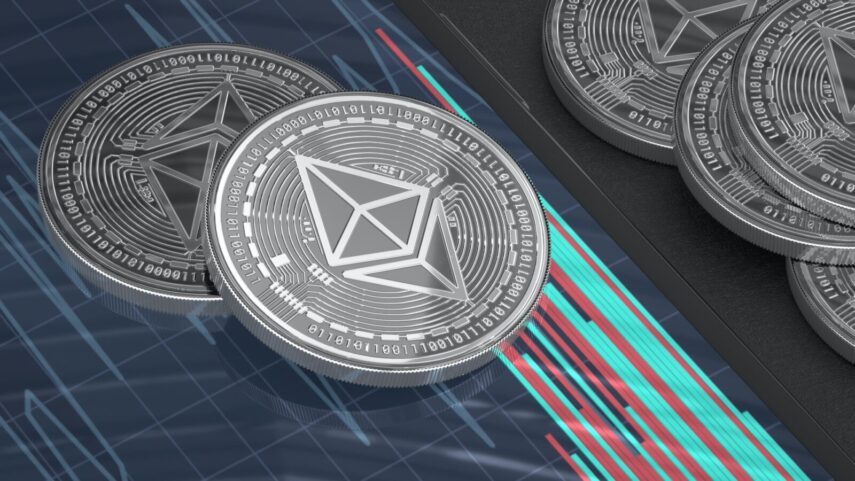Whenever a new technology or industry emerges, there are always those who are quick to jump on the bandwagon in hopes of making a quick profit. So it’s no surprise that when cryptocurrency mining became a thing, there were plenty of people eager to get in on the action. But is mining Ethereum the same as mining bitcoin? Let’s take a closer look.
The different types of cryptocurrency mining

There are several different types of cryptocurrency mining, each with its own benefits and drawbacks. The most common type of digging is Proof-of-Work (PoW), which rewards miners for their computational power. However, PoW can be quite energy-intensive, and some have criticized it for being too centralized.
An alternative to PoW is Proof-of-Stake (PoS), which rewards miners based on the number of coins they hold. PoS is less energy-intensive than PoW mining, but it can still be quite resource-intensive.
Another type of mining is solo, in which a miner tries to solve a block by themselves. It can be very profitable, but it is also very risky, as the miner has no one to share the reward with if they are successful.
The final type is pool mining, in which a group of miners works together to solve a block and share the rewards. It can be more profitable than solo mining, but it also comes with its own risks and challenges.
What is Ethereum?

Ethereum is a decentralized platform that runs smart contracts: applications that run exactly as programmed without any possibility of fraud or third-party interference.
This digital asset is different from Bitcoin in that it can be used to build Decentralized Autonomous Organizations (DAOs). A DAO is an organization with no central authority or leader. Decentralized means there is no single point of control. Autonomous means the organization can operate on its own, without any human intervention.
The Ethereum network is powered by ether, which is a crypto token that enables users to access the Ethereum platform. Ether is also used to pay for transaction fees and computational services on the Ethereum network.
Mining is how new ether tokens are created. Miners are rewarded with ether for verifying and committing transactions to the blockchain. Ethereum mining is different from Bitcoin mining in several respects. First, Ethereum miners can earn rewards for successfully verifying and committing transactions to the blockchain, while Bitcoin miners can only earn rewards for successfully verifying and committing blocks of transactions to the blockchain. Second, Ethereum uses a Proof-of-Work (PoW) algorithm, while Bitcoin uses a Proof-of-Stake (PoS) algorithm. PoW algorithms require miners to solve complex mathematical problems in order to verify and commit transactions to the blockchain, while PoS algorithms allow miners to validate transactions in proportion to the number of ether they own. You can try your luck at https://the-bitcoin360-ai.com
What is Bitcoin?

Bitcoin is a cryptocurrency and a payment system, first proposed by an anonymous person or group of people under the name Satoshi Nakamoto in 2009.
Bitcoins are created as a reward for a process known as mining. They can be exchanged for other currencies, products, and services. As of February 2015, over 100,000 merchants and vendors accepted bitcoin as payment.
How do Ethereum and Bitcoin mining differ?
Ethereum Bitcoin and mining differ in a few key ways. For one, Ethereum digging is done using a different algorithm than Bitcoin mining. Additionally, Ethereum miners are rewarded for their work with Ether, while Bitcoin miners are rewarded with Bitcoin. Finally, Ethereum’s blockchain is more versatile than Bitcoin’s blockchain, allowing for the development of smart contracts and other applications.
Which is more profitable: Ethereum or Bitcoin?
When it comes to profitability, both Ethereum and Bitcoin have their pros and cons. For Ethereum, miners are rewarded based on their share of work done, rather than their share of the total number of blocks mined. This means that even if you have a slower miner, you can still get a good return on your investment. However, Bitcoin’s reward system is designed so that each block contains a certain amount of new bitcoins, which means that over time, the rewards for mining will decrease. This could make Bitcoin mining less profitable in the long run.
How to start mining?

If you’re thinking about getting into cryptocurrency, here are a few things you need to know.
1. Choose your cryptocurrency
The first step is to choose the cryptocurrency you want to mine. There are many different coins available, each with its own benefits and challenges. Do your research and choose a currency that you think has a good chance of increasing in value over time.
2. Get the right hardware
The next step is to get the right hardware for mining. You’ll need a powerful computer with a lot of processing power to mine effectively. Make sure you research the different options and choose hardware that is energy-efficient to keep your costs down.
3. Join a pool
Mining pools are groups of miners that work together to mine a cryptocurrency. By joining a digging pool, you can share resources and rewards with other miners. This can help you be more profitable and reduce your risks.
4. Start digging
Once you have the hardware and are part of a mining pool, you’re ready to start mining. The process is computationally intensive, so you’ll need to be patient and let your computer do the work.
5. Monitor your progress
Finally, make sure to monitor your progress and profitability over time. Cryptocurrency prices are volatile, so it’s important to keep an eye on your earnings and adjust your strategy accordingly.
Conclusion
No, mining Ethereum is not the same as mining Bitcoin. While they both use Proof of Work (PoW) algorithms, Ethereum uses a different algorithm, called Ethash. This means that miners need to have different hardware in order to mine Ethereum. Additionally, the block reward for Ethereum is different than that of Bitcoin. Finally, the two currencies have different purposes: Bitcoin is meant to be a digital store of value, while Ethereum is meant to be used for decentralized applications and smart contracts.







